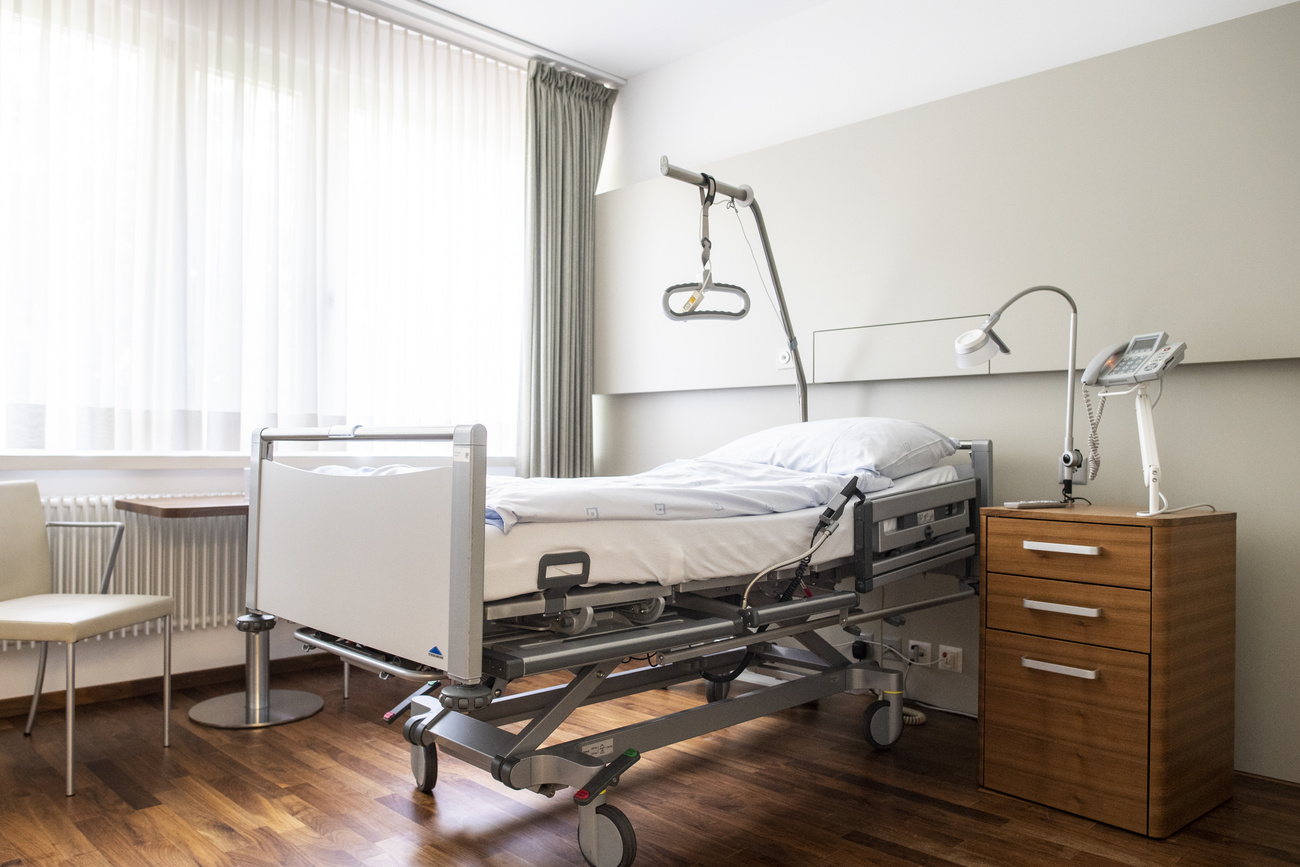
Deciding who gets the last Swiss hospital bed

If the number of Covid-19 patients in Swiss intensive care units (ICU) increases dramatically, doctors will soon have to decide who lives and who dies. Many old people are taking the triage decision themselves, steering clear of hospitals and opting to die in their nursing homes.
“No one wants to have to make such a decision,” Tanja Krones, head of clinical ethics at University Hospital Zurich, told the SonntagsZeitungExternal link. “Who receives life-support measures – and who doesn’t.”
Last week Andreas Stettbacher, the government delegate for the Coordinated Medical Service, warned that if no action is taken, ICU beds in Switzerland will last another 15 days.

More
Swiss intensive care units set to reach capacity in 15 days
The Swiss Academy of Medical Sciences has formulated guidelines on triage decisionsExternal link: people aged over 85 should only receive palliative treatment, for example. These guidelines are set to be revised next week.
However, the elderly themselves usually don’t want to go into intensive care, especially those who live in seniors’ homes, according to the SonntagsZeitung.
“Most of them still think of the pictures from Italy with overcrowded wards. That’s obviously a deterrent,” says Alois Haller, head doctor at the intensive care centre of the Winterthur Cantonal Hospital.
Tanja Krones warns of the danger of advice being given – or decisions being taken – outside the hospital to not transfer patients to hospital, also to protect the system. “Now that hospitals are full in some regions, we must work together to ensure that such ‘silent’ triage does not occur,” she said.

More
Coronavirus: the situation in Switzerland

In compliance with the JTI standards
More: SWI swissinfo.ch certified by the Journalism Trust Initiative






























You can find an overview of ongoing debates with our journalists here . Please join us!
If you want to start a conversation about a topic raised in this article or want to report factual errors, email us at english@swissinfo.ch.